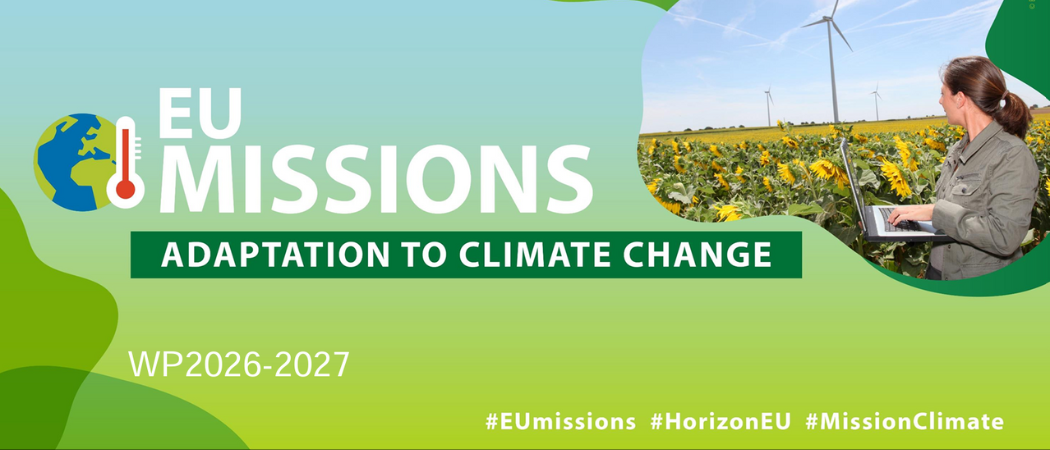Leaked plans for climate research show EU will strive for more impact in final years of Horizon Europe

photo credits: European Union
The final set of calls in Horizon Europe will bring simplification to climate, energy and mobility research, according to a leaked memo on the plans for 2026 and 2027.
The final work programme for Cluster 5 of Horizon Europe “will be a step-change in terms of simplification,” says the memo, seen by Science|Business. This means shorter, simpler, less prescriptive calls that allow applicants more flexibility in how they achieve their goals.
Simplification is part of the European Commission’s ambition to fund more impactful research. The push for impact will also define the choice of topics, with the memo suggesting the programme will be “more selective and strategic” when setting priorities.
The move is a direct response to the recommendations for Europe’s competitiveness and future research programmes set out in the influential Draghi and Heitor reports, which called for simpler rules and more strategic action.
To further boost the impact of funded projects on the bloc’s competitiveness, the memo proposes a pilot call in support of the upcoming Clean Industrial Deal, the Commission’s plan for decarbonising Europe’s industry, set to be revealed this month.
The call will aim to “mobilise and valorise” R&D investments to support the decarbonisation of European industry. It will likely fund big innovation projects such as demonstrators readying clean technology for scale-up and the market.
As part of the pilot, the Commission will try to create links between Horizon Europe and the Innovation Fund, the EU programme for deploying clean tech. This has been a challenge in the past.
Overall, Cluster 5 will cover climate, energy and mobility research and innovation across six overarching topics, or “destinations” in Horizon jargon. All six are listed in the memo alongside their expected impacts. The destinations are the same as in previous Cluster 5 work programmes.
However, this time there will be fewer calls but larger grants for each project. “The number of topics will be reduced, focusing on a limited number of strategic priorities,” the memo says. Although no budgets are listed, this suggests they may be similar to previous years.
The work programme’s goals include:
- Advancing climate science to support climate mitigation and adaptation
- Maturing technology for sustainable battery systems
- More efficient renewable energy and knowledge sharing in the sector
- Improving carbon capture, use and storage technologies
- Reducing energy demand in buildings
- Accelerating take-up and accessibility of zero-tailpipe transport and mobility systems
- Breakthroughs in clean aviation.
Climate adaptation Mission
Some of Horizon Europe’s climate research will be funded through its Mission on climate adaptation. Here, the Commission plans to spend €122 million in 2026 and €124 million in 2027 on four actions: continuity; deployment of research results; scale-up; and synergies. This is outlined in a separate memo seen by Science|Business.
Under the continuity action, the Commission mostly plans to support existing Mission platforms, such as national adaptation hubs, the implementation platform and climate services.
To support deployment, it will fund innovation and demonstrators for transboundary (i.e. global) climate resilience, climate-proofing cultural heritage and resilience in cities.
For scale-up, it will fund pre-commercial procurement of breakthrough solutions for addressing health risks caused by climate change as well as a funding call for start-ups as part of the European Innovation Council Accelerator programme.
On synergies, topics include resilient urban wastewater systems, forming a knowledge base for climate-aware local decision-making, and bridging the gap between disaster risk management and climate adaption.
Other two topics currently under consideration include a demonstrator for food systems and AI-based solutions for climate adaptation.
The European Commission sent the two leaked memos to stakeholders in the research and innovation community for consultation. These are draft plans that are likely to change in the coming months ahead of the expected release of the full 2026-27 work programmes in the last quarter of 2025.
We think it is important to maintain a public record of how Horizon Europe evolves in successive rounds of drafting between the Commission and member states. This is a political process that, so far, the Commission refuses to make transparent. To this end, Science|Business is making a full history of the drafting process publicly available in our Horizon Papers database. You can share other draft work programmes anonymously at [email protected].





 A unique international forum for public research organisations and companies to connect their external engagement with strategic interests around their R&D system.
A unique international forum for public research organisations and companies to connect their external engagement with strategic interests around their R&D system.